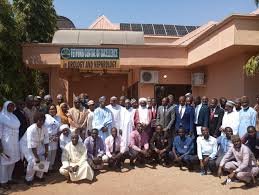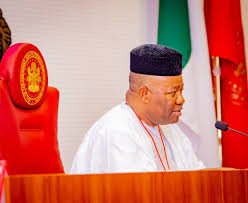The pension crisis in Northern Nigeria has reached alarming levels, with federal and state retirees struggling to access their payments and retirement benefits.
A survey by the News Agency of Nigeria reveals that some civil servants who retired as far back as March 2023 are still awaiting their accrued benefits, leaving many in dire financial circumstances.
“My pension administration has not called me to explain the reasons for the delay, but we heard that the delay was due to the federal government’s failure to pay the National Pension Commission,” said Ahmad Kawure, a former National Directorate of Employment employee who retired in October 2023.
Another retiree from Kaduna, who wished to remain anonymous, painted a grim picture of the government’s treatment of pensioners. “Most civil servants retire without a home of their own, and they rely on the money they have been saving for years to buy a house or venture into business. Unfortunately, most of them are now poor, with no income and lots of family responsibilities. Some get sick and cannot afford medical care.”
In Kano State, Baba Isa, a retiree who has completed all necessary documentation, expressed frustration with his Pension Fund Administrator. “I do not know why my PFA has not called me or paid any money into my account. I have filled all the forms they requested but have not heard from them. It has not been easy living without monthly income since I have retired, and my little savings are gradually being depleted.”
The health implications of these delays are particularly concerning. Adamu Aminu, who retired after 35 years of service, revealed, “Because of the delay in the payment of my pension, I could not buy some essential drugs for my ailment. I appeal to the PFA to release my money. I cannot understand why I have not been able to receive any money one year after I retired.”
Salisu Nura highlighted the broader economic context, urging President Bola Tinubu to intervene. “Fuel price hikes and hyperinflation are particularly challenging for pensioners surviving on minimal incomes.” Another pensioner, Ali Musa, called for pension increases to match minimum wage adjustments to help retirees cope with rising living costs.
In Katsina State, the Coalition of CSOs has taken a strong stance against the current federal government pension scheme. Chairman Abdulrahman Abdullah criticized the system as exploitative, stating, “The administrators make money from workers’ contributions right from the onset of their employment and continue to enjoy the same until their retirement age. Workers should be given 100 per cent of their contributions a month to their retirement.”
Abdullah advocates for a reformed approach, suggesting that the federal government provide investment training for workers a year before their retirement, enabling them to manage their gratuity effectively. “At the age of 60, a worker is mature enough to manage his money.”
The Explainer learned, the current pension system, established under former President Olusegun Obasanjo’s administration through the Pension Reform Act of July 2014, requires employers to contribute 10 percent and employees 8 percent.
Despite these regulations, the implementation continues to face significant challenges, with some retirees waiting between six months to a year for their gratuities.






















